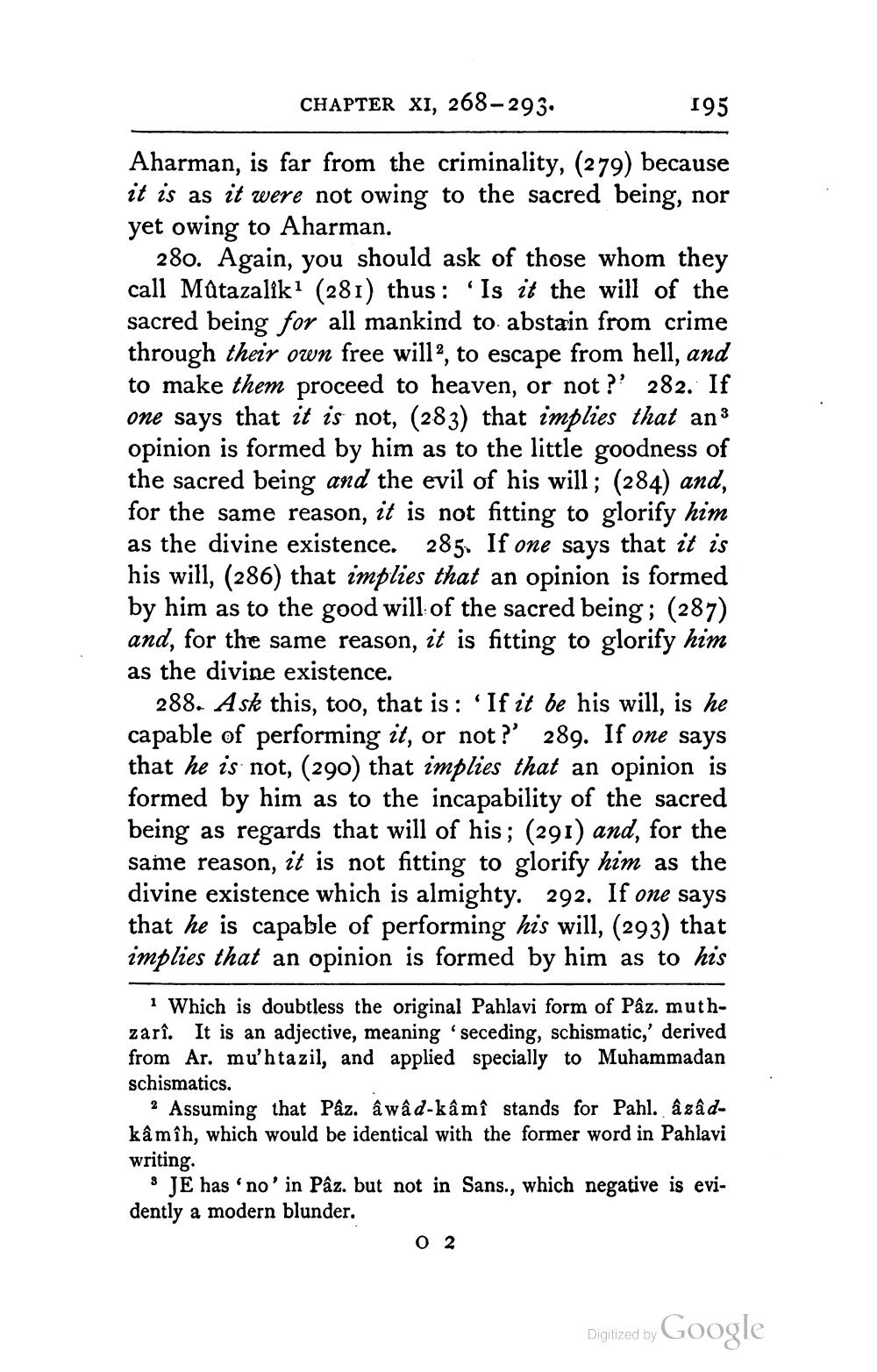________________
CHAPTER XI, 268-293.
195
Aharman, is far from the criminality, (279) because it is as it were not owing to the sacred being, nor yet owing to Aharman.
280. Again, you should ask of those whom they call Mutazaliki (281) thus : Is it the will of the sacred being for all mankind to abstain from crime through their own free willạ, to escape from hell, and to make them proceed to heaven, or not?' 282. If one says that it is not, (283) that implies that an 3 opinion is formed by him as to the little goodness of the sacred being and the evil of his will ; (284) and, for the same reason, it is not fitting to glorify him as the divine existence. 285. If one says that it is his will, (286) that implies that an opinion is formed by him as to the good will of the sacred being ; (287) and, for the same reason, it is fitting to glorify him as the divine existence.
288. Ask this, too, that is: 'If it be his will, is he capable of performing it, or not?' 289. If one says that he is not, (290) that implies that an opinion is formed by him as to the incapability of the sacred being as regards that will of his; (291) and, for the same reason, it is not fitting to glorify him as the divine existence which is almighty. 292. If one says that he is capable of performing his will, (293) that implies that an opinion is formed by him as to his
1 Which is doubtless the original Pahlavi form of Pâz. muthzarî. It is an adjective, meaning seceding, schismatic,' derived from Ar. mu'htazil, and applied specially to Muhammadan schismatics.
2 Assuming that Pâz. âwâd-kâmî stands for Pahl. âzâdkâmîh, which would be identical with the former word in Pahlavi writing
8 JE has 'no' in Pâz. but not in Sans., which negative is evidently a modern blunder.
02
Digitized by Google




